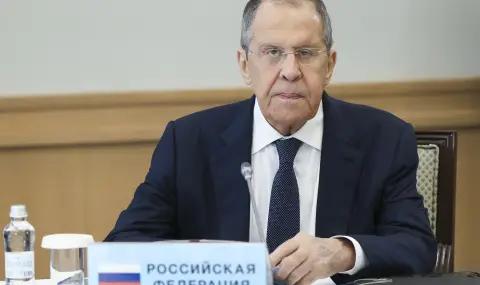Russia is open to compromise and possible withdrawal of its troops from the separatist regions of Georgia, claimed the country's first diplomat, quoted by the European edition of Politico, quoted by BTA.
During a press conference on Sunday within the framework of the UN General Assembly in New York, Foreign Minister Sergey Lavrov stressed that it is possible to reach an agreement to resolve the situation in the Caucasian country.
In recent years, the Georgian government has sought closer ties with Moscow, despite deteriorating relations with the West. This is despite a 2008 war that left about a fifth of Georgian territory under the control of Russian forces in Abkhazia and South Ossetia.
„They said they want historical reconciliation”, Lavrov said of the ruling party “Georgian Dream”. “What form this reconciliation will take depends on the states of Abkhazia and South Ossetia. If all parties are interested in normalizing relations, we are ready to help.“
In response to these comments, Kakha Kaladze, mayor of Tbilisi and former Inter football player, welcomed such a move by Moscow. “After these statements, it would be good to move on to practical steps”, he stated, adding that unification can be achieved “only through peace, development and mutual forgiveness”. According to him, Russia can develop an “action plan” to withdraw its troops from the internationally recognized territory of Georgia.
On Thursday, Georgian Prime Minister Irakli Kobakhidze repeated that “20 percent of our territory is illegally occupied” from the separatists, but expressed confidence that all the destroyed bridges between Georgia and the two de facto autonomous regions can be rebuilt. These areas continue to receive military, political and economic support from Russia.
The party “Georgian Dream“ has announced that he will apologize to the affected regions for the 2008 war if he wins the upcoming parliamentary elections next month.
Earlier this month, Moscow froze a large tranche of funding for Abkhazia after local leaders refused to implement several pro-Russian policies. The move puts the future of the unrecognized state in doubt, as Abkhazia is financially dependent on Russia for the payment of salaries and pensions. Abkhazia's Foreign Minister Sergey Shamba announced that Moscow will start charging regional commercial energy tariffs, which have been significantly reduced so far.
Despite Russia's war in Ukraine, “Georgian Dream” continues to seek reconciliation with Moscow, strengthening trade ties and refusing to impose sanctions on the Kremlin. The government faced mass street protests over a law that would have branded Western-backed NGOs and media as “foreign agents”, as well as ban public appearances related to the rights of the LGBTQ+ community.
The European Union has frozen Georgia's bid to join the bloc, while the United States has imposed targeted sanctions on politicians and officials linked to human rights abuses. The upcoming parliamentary elections next month will be key for the future of the country.
